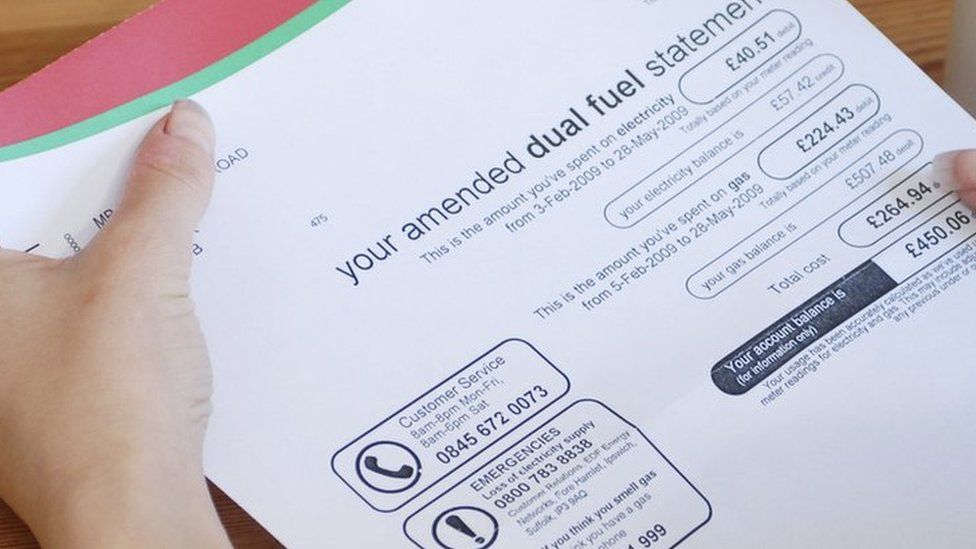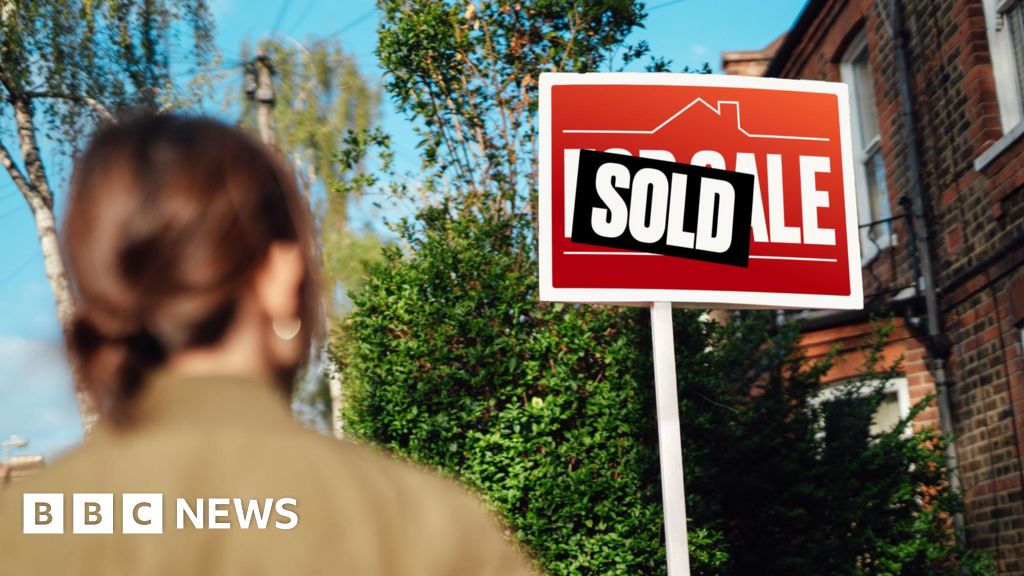ARTICLE AD BOX
By Faisal Islam
Economics editor
 Image source, Getty Images
Image source, Getty Images
All types of household energy bill are now heading above £3,000 a year this winter, figures seen by the BBC show.
The rise is 7% more than the latest cost of living support package from the government, announced six weeks ago.
The government said: "We do not recognise these figures but government and Ofgem keep a close watch on energy prices."
National Energy Action said there are "few signs of energy prices becoming affordable this winter".
The bleak prediction comes as households are already struggling with rising food and fuel prices.
Every UK household is to get an energy bill discount of £400 this October, whilst poorest households will also get a payment of £650.
But adding to the uncertainty are the resignations of the Chancellor and health secretary which are drawing ministers attention inward and away from any economic rescue plan.
Squeeze
The £3,000 household bill figure, seen by the BBC, is £200 higher than predicted by energy watchdog Ofgem in May.
Bills had already risen by £700 on average in April, with a further squeeze on incomes from the rising cost of living, as inflation hit 9.1% - the highest in 40 years.
While the official figure for the energy price cap is due to be announced next month by Ofgem, the period over which it is assessed is now almost complete.
In recent weeks, the price paid for gas to be delivered this winter has increased even more sharply. In recent days, the price paid per therm of gas has reached above £4, compared with an average so far of £2.60.
This has been driven by volumes of Russian gas exports going down, the closure of a key gas export facility in the USA, and a weaker value of the pound sterling.
The industry now anticipates that these price levels will sustain for most of the rest of the period, amid strike disruption to Norwegian supplies of gas.
Huge sums
The figures seen by the BBC have been calculated using the same methodology announced by Ofgem.
It means that on average, dual fuel users paying by direct debit face a bill of £3,018 per year.
A household using the same amount of energy but paying by prepayment meter would be charged £3,048 per year.
And for those paying the entire bill on receipt, the bill for average energy use would be £3,147.
The last, most expensive way of paying a bill is assuming more importance, say industry sources: some customers are reducing or cancelling their direct debit payments now, building up huge sums to repay in winter.
The price cap, in its early days, was ignored by millions of billpayers who used price comparison sites to find a cheaper gas and electricity tariff.
Now every twist and turn is watched closely, because it directly affects the energy bill of 23 million homes. The option to shop around has been absent.
Although we might be getting used to the reality of that bill going up every six months - a typical £1,000 a year increase would be the biggest shock of all, especially as it would start in the colder, darker winter months.
Even the extra financial support from government which was widely welcomed by charities and campaigners was based on the expectation of a lower bill rise that that.
All of which leads to unanswerable questions about how long this energy upheaval will last, and how deep the long-term impact will be.
While the government has put in significant levels of support, especially for poorer households, the former Chancellor's package was based on an Ofgem estimate for household dual fuel bills of £2,800 a year, already over double the price a year before.
Industry sources were sceptical that the government's plan to decouple electricity prices from gas prices, would have any impact on these numbers.
National Energy Action chief executive Adam Scorer said: "The government's package of support will lessen, but not avoid the pain.
"Millions will simply not be able to heat their homes. We will see serious ill health and early deaths for those most susceptible to the cold.
"This crisis will not just be measured in the cost of living. It will have a tragic cost in lives. We need to prepare for a winter unlike any other."
Dame Clare Moriarty, chief executive of Citizens Advice, said she thought the government did the right thing by targeting more financial support towards those who need it most.
"But there are still things they could be doing to get money in the pockets of people who desperately need it in the cost-of-living crisis," she said.
A government spokesperson said: "We understand that global inflationary pressures are squeezing household finances which is why the government has introduced an extraordinary £37 bn package to help households, including £1,200 each for eight million of the most vulnerable households."

 2 years ago
32
2 years ago
32








 English (US) ·
English (US) ·